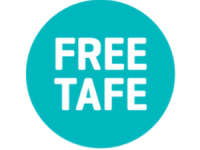Community Colleges Australia (CCA) has formally requested “guardrails” to protect Australian adult and community education (ACE) providers from possible unintended consequences of “Free TAFE”. This policy will create an additional 180,000 “fee-free” TAFE places to commence in January 2023 and a further 300,000 places from 2024.
In its submission (PDF) to the Commonwealth and all state and territory government skills and training ministers, CCA requests governments to develop:
- Policy protocols around “free TAFE” that include appropriate guardrails that ensure the ACE sector is not inadvertently disadvantaged.
- Clarification as to how access to “free TAFE” funding by not-for-profit adult and community education (ACE) and First Nations VET providers will take place.
- Formal pathways – now overdue – between Australian ACE and TAFE that ensure and encourage learners to transition seamlessly and efficiently from ACE to TAFE.
- A program of investment in the digital infrastructure of not-for-profit ACE providers, building on 2009 “Investing in Community Education and Training” program.
- A program that funds outreach officers and community engagement for ACE providers to recruit and support disengaged and disadvantaged learners.
CCA strongly endorses additional resources to TAFE and supports a strengthened TAFE sector as the anchor VET institution (download a copy of CCA statement in PDF). CCA recognises the shared values and important contributions that public TAFE and community education providers undertake to promote access and equity in education and training, noting that TAFE and ACE are natural allies and not competitors.
The ”free TAFE” policy concerns CCA because of the possible unintended consequences for Australia’s ethical, community-based, not-for-profit ACE providers, which each year deliver training to almost half a million VET students – more than 10% of learners. CCA believes that it is long overdue to develop pathways between ACE providers and TAFEs. CCA is keen, in the Prime Minister’s words at the Jobs and Skills Summit, that additional TAFE funding be “the beginning, not the end” of progress on skills or training.
ACE providers should not be disadvantaged by the larger marketing power of TAFE. If undertaken without due care, students may very well skip ACE providers – which specialise in enrolling vulnerable and disadvantaged students – and enrol in TAFE courses just because of a higher level of “brand awareness”. Vulnerable and disadvantaged students could also enrol in inappropriate TAFE courses just because they are “free” and heavily promoted, commencing higher level qualifications beyond their capability.
There appears to be a growing flexibility in Commonwealth wording around “free TAFE”. It is essential that access by not-for-profit ACE and First Nations organisations to this funding not be barred. TAFE and ACE are complimentary and should work together collaboratively, including career pathways to assist learners, communities and regions.
The potential disadvantage for ACE providers by “free TAFE” could be ameliorated in part by a national program to conduct outreach to adult learners who have become disengaged through impacts associated with COVID-19 or natural disasters such as floods and bushfires. Providers report a general fear and fatigue that affect willingness of potential students to study, which severely affects face-to-face training, as a large majority of disadvantaged learners are unable or unwilling to move to online learning.
Download a copy of the CCA submission (PDF): What “Free TAFE” Means for Australian Adult and Community Education Providers: A Submission by Community Colleges Australia to Federal and State Skills Ministers, 11 November 2022 (PDF).





